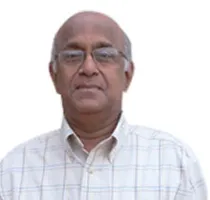On 8 July 2012, a landmark international conference on Afghanistan was held in Tokyo, attended by 55 countries and 25 international organisations. The participants included important personalities as President Hamid Karzai, Secretary Hillary Clinton, UN Secretary General Ban Ki-Moon, Japanese Prime Minister Noda Yoshihiko, and prominent leaders from Germany, France, Australia, India, Pakistan, Iran, and so on. Organised by Japan and Afghanistan, one of the chief objectives of the conference was to pledge the support and cooperation of the international community to the development efforts of Afghanistan towards achieving self-reliance during 2015-2024 known as the Transformation Decade.
The conference, coming at the end of a series of international meetings starting from Bonn in 2011 and including the RECCA meeting in Dushanbe ( March 2012), the NATO Chicago Summit (May 2012 ) and the Heart of Asia meeting in Kabul (June 2012 ), in fact, sought to indicate a path to sustainable progress in Afghanistan after 2014 in order to demonstrate that Afghanistan would be making a stable and sustained growth after 2014.
The Conference will be remembered for the two significant documents it issued at the end of the gathering and they were the Tokyo Declaration and the Tokyo Mutual Accountability Framework ( Tokyo Framework). Both these documents are complementary to each other in terms of their long-term vision to bring peace, security and prosperity to Afghanistan. The Kabul Government and the International Community reaffirmed their resolve to consolidate their partnership from Transition to the Transformation Decade (2015-24). The Tokyo Declaration claimed that Afghanistan had already achieved substantial development in many fields such as education, health, power generation, roads, and telecommunication . Further, in the field of democratic governance, it stated that the Afghan Government had also taken significant steps like the promulgation of a new constitution, pledged a commitment to human rights including the protection of women’s rights, and to the growth of civil society and free media.
The Declaration admitted, however, that Afghanistan would still have to go a long way to realise the aspirations of its people for a peaceful, stable and self-sustaining Afghanistan. The Declaration recognised that the first and foremost need of the Afghan people was peace and security and with the creation of the Afghan National Security Forces (ANSF ), more than 75 per cent of the people would come under it protection. The Afghan forces would be in charge of the country’s security from 2014 when the Allied forces would withdraw from Afghanistan. The participants appreciated the clear vision and well-funded plan for a sustainable ANSF during the Transformation Decade. They also expressed their willingness to support the development of the Afghan National Army and the Afghan National Police during the transformation years.
In addition to security, the participating countries also laid stress on the need for Kabul to implement its own vision and strategy for economic self-reliance of Afghanistan. Of equal importance was the need for Afghanistan to work out regional cooperative programmers with the neighbouring countries since "regional cooperation and integration contribute to the sustainability of development efforts through increasing economic and trade opportunities." The Declaration also expressed its strong desire that Afghanistan should closely interact with regional fora like the SCO and the SAARC.
The Tokyo Framework, another important document, provides a broad assurance of mutual commitments for a long-term partnership between Afghanistan and international community during the decade. Under the framework, Afghanistan would implement its development strategy and improve governance with transparency, while the international community would carry out its obligations to provide specific assistance for Afghanistan’s economic progress. Both parties decided to establish a mechanism to monitor their performance and work plans through a review process. 1) A standing committee and a Joint Coordination and Monitoring Board would review progress of the partnership on a regular basis; 2) A Senior Officials Meeting would be held in 2013 and every second year thereafter to review the progress; and 3) A ministerial -level Meeting would be held in 2014 and every second year thereafter to review progress, update indicators, assess resource requirements and renew international commitments.
Japan’s role in Afghanistan
By holding this conference in Tokyo, Japan has shown its deep interest in playing an important role in the peaceful economic reconstruction of Afghanistan. Japanese Prime Minister Yoshihiko Noda expressed his optimism that despite many challenges that Afghanistan faced, the Conference had sown the seeds of peace and hope for Afghanistan. Japan has been involved in the Afghan issue since 2002 when the International Conference on Reconstruction Assistance to Afghanistan was held in Tokyo. Till the end of 2011, Japan had provided economic assistance worth $3.3 billion which flowed into various sectors including building political processes, infrastructure development and industrial and agricultural development. Having had such valuable experiences in Afghanistan, Japan now has offered to provide $ 3 billion over five years from 2012 in the spheres of agricultural development, infra structure and human resource development. Another significant contribution of Japan was that it was able to secure the participation of the major donor countries and international organizations and obtained commitments from them for assistance amounting to $16 billion until 2015. The Tokyo Declaration and the Tokyo Framework conveyed a strong message to the world that Afghanistan would remain stable and make headway towards socio-economic development beyond 2014.It is expected that Japan will take its own initiatives to make follow-up measures under the two mechanisms formulated at the Tokyo Conference.
(Prof. K.V. Kesavan is a Distinguished Fellow at Observer Research Foundation)
The views expressed above belong to the author(s). ORF research and analyses now available on Telegram! Click here to access our curated content — blogs, longforms and interviews.

